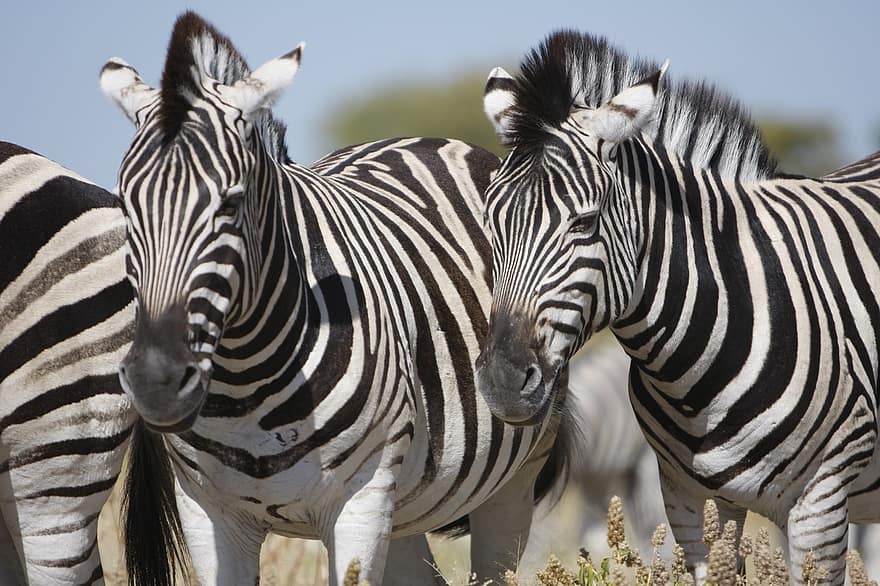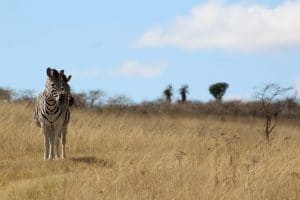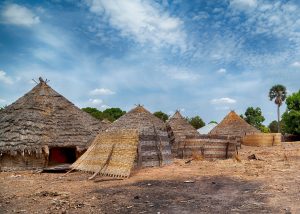In June, 2019, at Africa’s Wildlife Economy Summit, hosted by the African Union and United Nations Environment Programme in Victoria Falls, Zimbabwe, community representatives called on African Governments, the private sector and international organisations issued a Declaration in which they called for a New Deal that recognises the integral role of communities in the ownership, management and conservation of the natural resources that drive the continent’s wildlife economy.
DECLARATION
Voices of the Communities: A New Deal for rural communities and wildlife and natural resources
We, the over 40 community representatives of 12 countries across Africa have met prior to Africa’s Wildlife Economy Summit, to tell the stories of our experiences of living with and among Africa’s wonderful wildlife that our forebears watched over and cared for from time immemorial as an integral part of their societies’ culture, traditions and economies. We have discussed the role of communities in managing wildlife resources on their land – bearing the costs of living among them sustainably over centuries, despite the continuing legacy of dis-empowering colonial laws and policies.
We are the front line of defence in protecting natural resources and combatting illegal wildlife trade.
A key component of Africa’s economic potential lies in its biodiversity and wildlife economy, as a unique competitive advantage, for fighting poverty and building resilient communities. Given rapid changes facing Africa in terms of growing poverty and inequality, impacts of climate change, and increasing land transformation that have the potential to destabilise economies of the continent, urgent attention needs to be paid to these threats.
We are not helpless communities. We have strong capacity to take this New Deal forward ourselves, if our rights of ownership, governance and use of our natural resources are recognised and respected, as share-holders and not mere stakeholders.
We therefore implore you the Heads of State and governments in Africa together with the private sector and international organisations to recognise the role of communities in the ownership, management and conservation of natural resources that drives the wildlife economy across Africa and to address our concerns, in the spirit of environmental and economic justice.
Let us move from a raw-deal to a New Deal.
Goals
Noting increasing rural poverty across the continent, loss of wildlife and habitat, lack of inclusion of communities in decision making and lack of rights, our goal is to reset the agenda for community based natural resources management to:
– Reduce poverty at household level;
– Turn wildlife into a rural economic engine;
– Achieve self-determination and security of rights and tenure; and
– Develop strong community institutions to govern wildlife sustainably.
Solutions and way forward
With consideration of the above arguments, we the communities of Africa propose the following as the way forward to achieve a New Deal:
– Recognise community rights over the ownership, management and use of resources
– Strengthen community governance and institutions
– Build and enhance local capacity of communities to govern and manage natural resources
– Recapitalise the communities and their natural resources including across boundaries
– Ensure that community voices are heard in shaping policy and decision making – from the local to the global level
– Strengthen evidence-based adaptive management, incorporating indigenous knowledge
– Promote investment partnerships in a community-owned wildlife economy.
– Ensure that a full and fair share of benefits from the wildlife economy flow directly to the communities.
– Change the development model from doing things for communities to financing well-governed communities to do things for themselves
This is an invitation to Heads of State and governments of Africa, the private sector and international organisations to work with us to allow our continent’s communities to achieve a New Deal that will become a stronger foundation of Africa’s Wildlife Economy.
We trust that this is the first step in a meaningful process bringing us together as communities, government, private sector and international organisations as equal partners to conserve our biodiversity into the future. We call on the global community to support this initiative as our biodiversity is a global asset.
It is our request that this Declaration be part of the formal record of this Summit.
Signatories
1. Bachir Zahia – Representative of indigenous women in North Africa (Algeria)
2. Gakemotho Satau – TOCaDI (Trust for Okavango Cultural and Development Initiative (Botswana)
3. Mufumo Difima Ntinu – Traditional King (Democratic Republic of Congo)
4. Prescilia Monireh Kapupu – ANAPAC – Alliance Nationale d’Appui et de promotion des Aires du Patrimoine Autochtone et
Communautaire en République Démocratique du Congo (Democratic Republic of Congo)
5. Dickson Kaelo – Kenya Wildlife Community Conservancies Association (Kenya)
6. Mohammed Handaine – Comité de Coordination des Peuples Autochtones d’Afrique (Morocco)
7. Catarina Chidiamassamba – FNDS-MozBio Project (Mozambique)
8. Jose Monteiro – Community Land Initiative (Mozambique)
9. Maxi Louis – Namibian Association of CBNRM Support Organisations (Namibia)
10. Brissetta I.Hendricks – Ûibasen Twyfelfontein Conservancy and Southern Kunene Conservancies Association (Namibia)
11.Hilma Angula – Namibian Association of CBNRM Support Organisations (NACSO) (Namibia)
12.Lamson Maluleke – Makuleke Peoples (South Africa)
13.Timex Moalosi – Okavango Delta (Botswana)
14. Ikal Ang’elei – Friends of Lake Turkana (Kenya)
15.Lesle Jansen – Natural Justice (South Africa)
16. Lungisa Hann – Rural Women’s Assembly (South Africa)
17.Masego Madzwamuse – Southern Africa Trust (South Africa)
18.Bupe Banda – Zambia CBNRM Forum (Zambia)
19.Isaac Banda – Zambia CBNRM Forum (Zambia)
20. Chiza Duncan Mkandawire – Nyika Vwaza for Natural Resources and Rural Development Association (Malawi)
21.Malidadi Berlings Langa – Kasungu Wildlife Conservation for Community Development Association (KAWICCODA) (Malawi)
22.Chifundo Dalireni – Wildlife and Environmental Society of Malawi (Malawi)
23.Malan Lindeque – NACSO (Namibia)
24.Liberty Chauke – Campfire Association of Zimbabwe (Zimbabwe)
25.Rodgers Lubilo – Zambia CBNRM Forum (Zambia)
26.Steven Robert Johnson – VukaNow (South Africa)
27.Kule Chitepo – Resilient Waters Program (South Africa)
28.Lola Lopez – Resilient Waters Program (Mozambique)
29.Tinashe Mutoredzanwa – Resilient Waters Program (South Africa)
30.Steve Collins – Resilient Waters Program (South Africa)
31. Liliane Limenyande – Resilient Waters Program (South Africa)
32.Charles Jonga – CAMPFIRE Programme (Zimbabwe)
33.Aaron Maramba – Gudo community development Trust of Zimbabwe (Zimbabwe)
34.Lorna Dax – Khoadi //Hoas Conservancy (Namibia)
35.Joseph Itogwa – DRC- ANAPAC (Democratic Republic of Congo)
36. Rokhaya DIEYE – Senegal
37.Daniel Misaki – Uganda
38. Nkosana Butholenkosi Masuku – Zimbabwe



